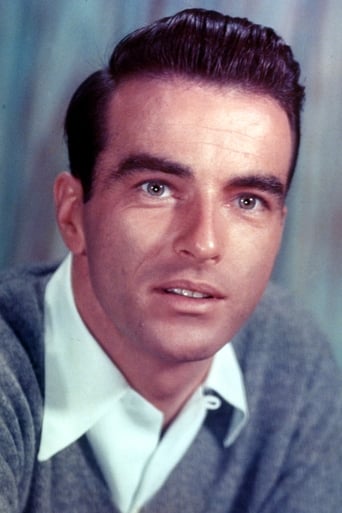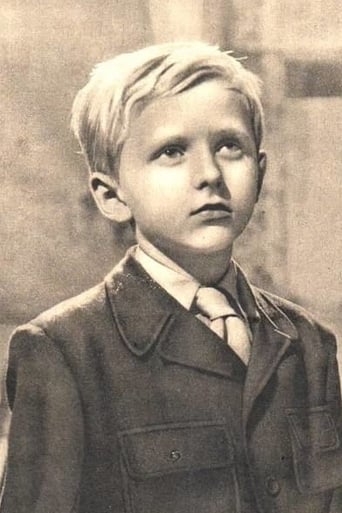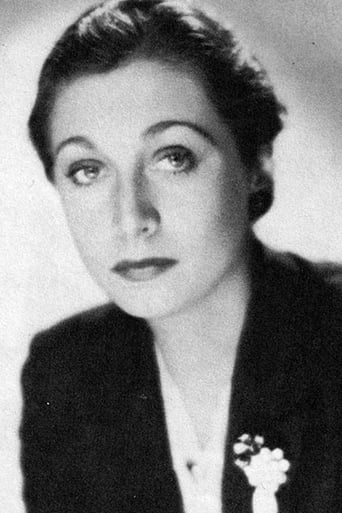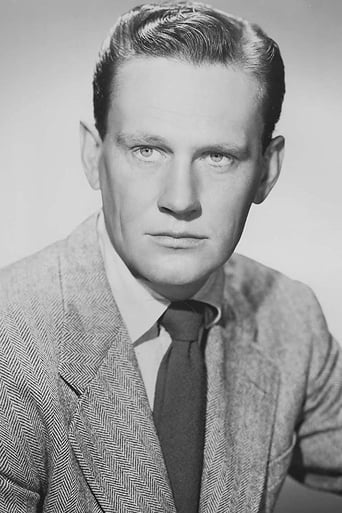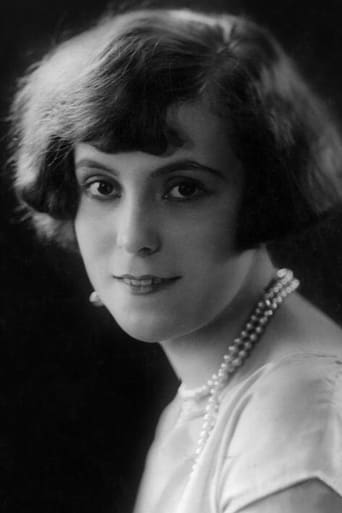WasAnnon
Slow pace in the most part of the movie.
Spoonatects
Am i the only one who thinks........Average?
Tobias Burrows
It's easily one of the freshest, sharpest and most enjoyable films of this year.
Juana
what a terribly boring film. I'm sorry but this is absolutely not deserving of best picture and will be forgotten quickly. Entertaining and engaging cinema? No. Nothing performances with flat faces and mistaking silence for subtlety.
PamelaShort
The Search is an extremely absorbing, satisfying and most heart-rending drama of the highest sort. A film where many of the scenes were shot amidst the actual ruins of the post-war Germany cities, Nuremburg, Ingolstadt, and Wurzburg. The story concentrates on a young orphan boy who is a survivor of the Auschwitz concentration camp. He is befriended by a young, earnest G.I. who takes a sincere interest in the wide-eyed child, soon teaching him to speak fluent English. He decides to search aimlessly for any surviving relatives of the boy, for soon he must return to America with the homeless child. Meanwhile, the boys mother is not only alive, but has been searching desperately for her only child. With the two separately searching for each other, the viewer soon realizes a very heart tugging reunion is about to take place. Even though this happy ending is predictable, nothing can prepare you for the overpowering impact of emotion. Rarely does a movie pull you completely into such an staggering emotional state, all due to a poignant story, delivered by the superb performances of Ivan Jandl, Montgomery Clift, and Jarmila Novotna. Top-notch performances are given by all supporting actors in this perfectly paced film. A must see story for many reasons, especially for understanding the pitiful realities of war and the impact on innocent surviving victims.
Marcin Kukuczka
"I dream of giving birth to a child who will ask, "Mother, what was war?" (Eve Merriam).When seeing this wonderful post-war production, one could almost swear that it is a product of Italian Neorealism. Opening at the UNRRA camp with the sad image of war orphans, it powerfully addresses viewers' hearts. Are there any other creatures on earth more harmed by the terrifying reality of war than innocent children? Those who want to live at the dawns of their lives? Those whose simplicity of happiness lies in smiling faces? Those who 'have the right to better things' in this corrupted world? Yes, the story places us on solid ground of this tragic reality not making anything look sweeter, nicer but simply the very dramatic way it is. We are among those who did nothing wrong to anybody and, yet, are suffering so intensely as 'nameless human beings.' The search...we soon realize that it is not merely a search of a stolen thing which affects employment but a search of a human being and a human perception - a human whose dignity has been terribly robbed.Many of the extras, scenes shot in actual ruins of post war Wuerzburg, Nuremberg, Ingolstadt along with the languages used by the children, including Czech and Polish, supply the movie with an almost documented material, something Bosley Crowther (New York Times, March 1948) accurately referred to as "an illusion of absolute naturalness." From the moment we pay attention to one of the kids, a 10-year old Czech boy Karel Malik who does not know nor remember anything after he was separated from his family, from his mother (we know him from a touching flashback), we follow his story and empathize with him. Though there is a fence in his mind, his pursuit of freedom and happiness does not close him within the walls of the camp. Together with another boy, he escapes the ambulance and, ironically, amids the ruins of destruction, he meets a true friend who shows him that people may talk instead of yell, people can build instead of destroy, people can give instead of take. Yet, his longing written deep in his heart, a longing for a mother reveals the story's humane power. For its authentic depiction, great credit is given to director Fred Zinnemann, scriptwriter Richard Schweizer and his collaborator, a Swiss producer Lazar Wechsler.Much could be said about various performances but the one that truly deserves a very special note is Ivan Jandl's. A talented boy found by Mr Zinnemann in a school group in Prague evokes extraordinary feelings in viewers to this very day. His achievement certainly belongs to the very best child performances ever seen on the screen. Let me again refer to Bosley Crowther who notes that young Ivan "has such tragic expression in his slight frame, such poetry in his eyes and face and such melting appeal in his thin voice that he is the ultimate embodiment of the sorrow-inflicted child." Unforgettable from the moment at the UNRRA when his only answer is "Ich Weiss Nicht (I don't know)" to the vibrant scenes with Steve played brilliantly by Montgomery Clift (Ivan did not know English but learned his lines phonetically). He shows us a great ability to display feelings of trust yet, a state of mind still affected by trauma. Consider his moment with one American boy Tommy. Winning a very special Oscar, the Juvenile Award, as a Czechoslovakian inhabitant, Ivan Jandl was forbidden to travel to the USA in order to receive the awards. Despite his great performance, the drama of his role somehow influenced his real life from that moment on. Pity Ivan Jandl had not lived in the USA...Americans, indeed, had more breathing space and, naturally, greater possibilities for a career. Along with RED RIVER (1948), THE SEARCH may be considered a movie that made Montgomery Clift a star. He handles his role nicely as the one who 'tames' a nameless boy first but the one who soon becomes a friend of the boy whom he calls 'Jim'. Note that he first fulfills Karel/Jim's basic need of food (seemingly simple but so meaningful in the depiction of reality) and then, he renews hope in 'Jim,' gives him some possibilities for 'normality' and teaches 'Jim' English. Indeed, the scenes of 'natural English lessons' belong to the best ones that these two young talented actors have. The unforgettable moment of the two, however, is the moment at the birches and their conversation about the mother who is alive. After this film, Clift's talent was recognized and he made some of the greatest movies in his short but fruitful career in Hollywood.Among the cast, a person whose career influenced more music than film is Jarmila Novotna, an opera singer who gave her performances at MET as well as at the Vienna State Opera and Opera Berlin. She subtly plays Ms Malik, Karel's mother. She is one of the most humane characters that Hollywood ever depicted, one of the most sympathetic characters who fills her search, her longing, her waiting with helping others. By helping others, she helps herself not out of some religious duty but out of heart's call. From the supporting cast, Aline MacMahon deserves attention as Ms Murray, a compassionate UNRRA worker.Much suffering had to be endured and much burden within the patience of the search so that both grown ups and children could be amazed by the wonder of "Schalom" (Peace). This masterpiece is a must for everyone who is able to accept some thought provoking aspects. Are you ready to empathize with these characters? Are you ready to notice the very special treasure you are looking for? Are you ready to be engrossed by the wondrous idea hidden in the film's morale? Without its core search of human perception within yourself, the movie is a mere product of its time - the past. Yet, there is something more to be conveyed. 10/10
oneils-3
For some reason, I had never heard of this film, taped it off TCM. I don't love Clift, find him stiff and self conscious, but he was OK in this role. Red River - same thing. The kid, however, what great/lucky casting, as he is amazing, 100% believable, made the whole thing work. The Mom, same. I haven't read the kid's bio yet, but wonder why he wasn't scooped up by Hollywood? Zinneman was a great director, I must go check out his other lesser-known work, other than of course High Noon, Day of the Jackal, etc. The scenes of post-war Germany are stunning. I have never heard of this film being touted as one of the better anti-war statements, and it should be. Few films (any?) deal with the devastating impact on children and families. I loved this film from beginning to end, the feel of it. The boy's buddy drowning in the stream.....understated but heartbreaking, no need for melodrama and sappy music. I loved this flick from start to finish.
Steffi_P
In the years following World War 2, stories about reconstruction and readjustment were popular with filmmakers, although they were somewhat hit-and-miss with the public, who at the time would accept nothing less than full understanding and sincerity on so sensitive a subject. Even viewed today, they are a bit of a mixed bag, and many seem to have been made with the best intentions but with naiveté in their presentation. The Search is one of these.The bare plot of the Search is kind of poignant-postwar-story-by-numbers. That's not such a bad thing in itself - often the simplest ideas are the best. Even its basic structure is a good balance, beginning with an objective exposition of the plight of children in war-ravaged Europe, allowing the Ivan Jandl character to emerge from the group, then parallelling his mother's desperate search with his own psychological recovery. I don't think the Oscar for Best Original Story was deserved but I can certainly understand it.The trouble is in the screenplay as it is written. Much of the scripted dialogue is bland and trite, and the way characters react in certain situations seems false - for example, the British UNRRA officer prompting Mrs Malik to keep questioning the Jewish boy even after she has suffered the shock of his not being her son. The very worst thing is the twee voice-over narration, which elaborates every point, regardless of whether it is already obvious or even necessary to know, in the most patronising tone imaginable. Perhaps the intention was to make these early scenes less confusing and threatening to child viewers - but other than its protagonist being a child, there is nothing to suggest that this picture is especially aimed at kids. And really, without the narration we would have been left with a more genuinely childlike view of the story. This is especially true of the flashback scene of Karel Malik's family - a young child would remember this time not so much in the adult context of where the city was or what his father did for a living, but more as a series of images. Imagine how much more powerful this scene could have been if we were to experience it the same way.Almost predictably, the director is Fred Zinnemann. This man would later do some great things, but his job on the Search is rather amateurish. I think his biggest problem here is failing to show things from the point of view of the child. In those early scenes we only see the rescued youngsters from the perspective of the UNRRA officers. We see that these kids are confused and daunted by their new guardians, but I feel truly great directing would have allowed us to share this feeling. Even in those cramped and crowded trucks the camera remains aloof above the children, rather than among them. And this from a director who tended to overuse point-of-view shots in his early pictures. The only thing I like about Zinnemann's direction here is the stark realism he gives to the ruined city, and the way he keeps this sense of a desolate environment at the forefront.I am glad to say it is the cast who make the best effort at rescuing this picture. Montgomery Clift gives a wide-ranging and naturalistic performance, but probably his best contribution is that he apparently improvised much of his own dialogue, making his scenes stand out above the turgid mess of the rest of the picture. Young Ivan Jandl gives an excellent performance for a child player. You can see that there is a lot of himself in the role, but that he is also clever enough to think about what he is doing and really put effort into acting. However the real treat here for aficionados of classic Hollywood is Aline MacMahon, who was busiest as a comic supporting player at Warners in the early 1930s. In the Search she is supremely dignified, even without makeup.The way things are in the Search is the way things often were for smaller productions in the postwar era. The studio system was weakened and the majors often found themselves collaborating with independent producers. Hollywood was not the well-oiled machine it had been in the 1930s, and we got teams where not everyone was on the same wavelength. The Search is one of the unfortunate collisions of this period, between arty-farty pretensions and Hollywood gloss.

